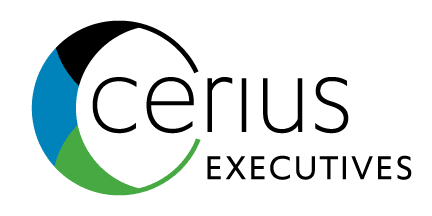How To Find Your Career Sweet Spot
When we are in a career sweet spot, typically our competence is subconscious. Most of the time we are not even aware of the different steps we take in performing activities you’re a master in. Think over your accomplishments and note what steps you took to achieve them.
According to a recent study, companies named attracting and retaining top talent as the number one factor that will affect their growth and market position in the next 10 years. Human capital flight, also known as the “brain drain”, is a huge loss to companies when they lose intelligent, well-educated individuals for better pay or conditions. Newsweek referred to the brain drain phenomenon as the “nuclear war for talent.”
The economic recession caused companies to remove their top line talent on expensive payroll. Their intention was to cut away the fat, but along with it, they cut away the muscle and bone. Now, these companies are struggling in a hyper-competitive market to retain the talent and experience they once had, but they need to go further.
The recession left talented, experienced people unemployed, held back from their dreams and as a hostage of the economy. The question is why aren’t they taken by the companies that need them? The challenge is the unprecedented generational gap we’re going through and the language barrier we are facing.
Break down the language barrier.
Here’s an executive recruiter top secret: “We don’t care what you want”. Executive recruiters work on behalf of the client companies that pay their fees, and it is these companies which drives them. It’s all based on a principle which works almost everywhere: we serve clients who pay our fees.
The more you can offer a recruiting agency (regarding your skills and capabilities), which they can give to their clients, the more likely you will pass through the hiring process. Executive recruiters are not looking for people who WANT to do this, but rather people who CAN do this. Recruiters need to hear what the applying executive does best.
Throw out your old strategy of just handing in a CV and memorizing all your experiences and skills. That no longer works. New strategies in approaching a recruiter should revolve around presenting your career sweet spot.
Career ‘Sweet Spot’
Start by identifying what you do best and what you enjoy most, both at the same time. This zone is where you are unstoppable. If you’re the go-to person for a specific project, people want to know that because this is where you are more likely to succeed and perform best. Compare that to ‘what a company is willing to pay for and what they see value in’ and you get your career sweet spot.
So how do you find your career sweet spot? Try this little exercise:
List at least 10 accomplishments that you have been proud of in your past, and more importantly ones which you thoroughly enjoyed the process. This list isn’t for your resume but rather for your retrospection, so stay honest and don’t focus on adding only those things which you think will impress others (including those outside your industry) and/or added value to the situation. It will give you the essence of what your key success patterns are.
When we are in a career sweet spot, typically our competence is subconscious. Most of the time we are not even aware of the different steps we take in performing activities you’re a master in. Think over your accomplishments and note what steps you took to achieve them. Itemize all the steps under each one of your accomplishments and you’ll notice a common denominator. You might find out that you’re socially active focusing on teamwork or maybe more process driven.
Communicating your career sweet spot
Just telling recruiters your accomplishments isn’t going to score you any points. You need to explain how you put your career sweet spot to work in a verifiable example. It explains to the hiring manager how you work. It also helps you break free from your experiences, and makes the recruiters themselves think out-of-the-box to create new opportunities better suited for you. If you leave the guess work up to someone else of how your career sweet spot can be applied, they likely won’t start guessing at all. Make it easy and tell them.
The best time to tell recruiters what your career sweet spot is, is when you’re selling yourself. They might ask you what you are looking for, or to tell them about yourself. The answer should focus on the client and the situation (not you), highlighting your career sweet spot followed by an example.
Another place to use it is when you’re networking or using your elevator pitch. This is not a time to tell what you want, what you did nor how well you did it. That’s old school. Now is the time to get in with your career sweet spot. Tell them what you do best and the impact it has (the use of numbers are great!), relating it to your career sweet spot.
It is wrong to assume that everybody instantly gets it. It is hard enough for you to figure out how exactly you master your specialty, so it can be difficult for others to grasp the complexity as well. Break it down in an easy-to-understand way with words (and numbers) they are familiar with. It’s up to you to come up and articulate what it is you do best.
And this is how you break the language barrier.


